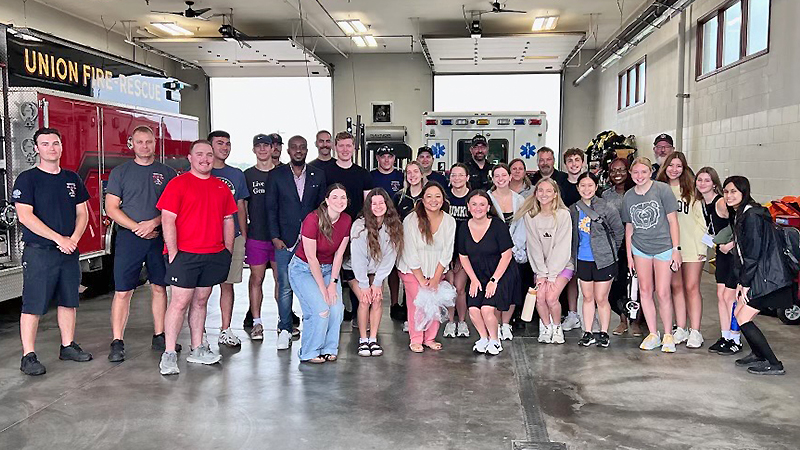Medizin Immersion
The Importance of Medizin Immersion in Medical Training
Medizin Immersion is a transformative approach within medical training that provides aspiring physicians with hands-on experience and exposure to real-world challenges in healthcare. This method emphasizes learning in community-based settings, leveraging practical interactions to enhance understanding and proficiency in medical practice. By participating in courses and programs designed to replicate actual clinical environments, medical students can develop critical thinking skills, promote cultural competency, and gain invaluable insights into patient care.
Hands-On Experience in Nursing and Medicine
One of the core components of Medizin Immersion is the immersive experience it offers to students and professionals alike. In essence, it allows them to practical application and reinforce theoretical knowledge gained in the classroom. For instance, during a recent Medicine Immersion Day hosted by Black Physicians of Utah, participants engaged in simulations, role-playing, and workshops aimed at refining their diagnostic and interpersonal skills. These experiences not only foster learning but also encourage reflection on personal practice and patient interactions.

Enhancing Cultural Competency through Immersion
Cultural competency is vital in providing equitable healthcare. Programs centered around Medizin Immersion allow future healthcare providers to work with diverse populations, which helps to cultivate understanding and empathy. By meeting already underserved communities, students can learn how cultural factors affect health decisions, treatment adherence, and patient outcomes. This exposure creates a more culturally sensitive practitioner, ultimately leading to improved healthcare experiences and better health outcomes for patients across different backgrounds.
Key Components of Effective Medizin Immersion Programs
For a Medizin Immersion program to be effective, several critical components must be present. These components include active learning, reflection, collaboration, and mentorship. Each of these elements contributes to a holistic educational experience that equips participants with the necessary tools to tackle future challenges within their medical careers.
Active Learning Approaches
Active learning is a pivotal strategy in Medizin Immersion, where students are encouraged to engage actively in their learning process rather than passively absorbing information. This could involve collaborative case studies, group discussions, and hands-on clinical experiences. The emphasis is on fostering critical thinking and problem-solving skills that allow students to apply their knowledge in a practical context genuinely. For example, during certain training sessions, students participated in difficult conversations regarding ethics in patient care, making it a thought-provoking experience.
The Role of Reflection and Feedback
Reflection is an essential part of the learning process, helping students to evaluate their experiences and identify areas for improvement. Structured feedback mechanisms during and after each immersion experience allow students to assimilate new learning and adapt their skills accordingly. Constructive feedback from peers and mentors can highlight specific clinical skills, communication methods, and therapeutic approaches, elevating the participant’s capabilities to provide effective patient care.
Evaluating the Impact of Medizin Immersion
Assessing the outcomes of Medizin Immersion requires consideration of various metrics. Outcomes can include clinical performance, cultural competence, and even long-term professional development. Evaluating these aspects helps inform the continued evolution of training programs, adapting them to meet learners’ changing needs efficiently.
Clinical Performance Metrics
Tracking clinical performance connects the immersion experience back to practical care delivery. Metrics used might include patient satisfaction surveys, improvement in diagnostic accuracy, and the effectiveness of treatment plans.
Through continued monitoring, medical educators can adapt curricula to ensure that termed opportunities within the immersion program remain suitably challenging and beneficial to trainees. As evidenced during the Medicine Immersion Day organized by Black Physicians of Utah, tangible growth in student competency can be achieved when programs adequately reflect the needs of future healthcare providers.

Professional Development Outcomes
Professional development is another critical factor shaped by Medizin Immersion. As participants engage in collaborative networks and mentorship opportunities, they often build lasting connections with professionals in the field. This aspect is crucial since networks can aid in securing future internships or job opportunities and fostering a supportive community geared towards lifelong learning. By promoting a growth mindset during these immersion experiences, students can prepare for the trends and changes in healthcare.
Conclusion
Medizin Immersion plays a pivotal role in shaping the future of healthcare by preparing aspiring medical professionals through experiential learning and community engagement. By integrating various educational strategies such as active learning, reflective practice, and collaboration, these immersion experiences provide comprehensive medical training. As we move forward in an ever-evolving healthcare landscape, it is essential that such innovative approaches continue to thrive, equipping future generations of healthcare providers to deliver exceptional care.
FAQ
1. What is the primary goal of Medizin Immersion?
The primary goal of Medizin Immersion is to enhance medical education through hands-on experience and community engagement, enabling students to apply theoretical knowledge in real-world scenarios effectively. This method fosters essential skills, including critical thinking, cultural competency, and patient-centered care, ultimately producing well-rounded healthcare professionals.
2. How does Medizin Immersion support cultural competency?
Medizin Immersion supports cultural competency by immersing learners in diverse healthcare settings, exposing them to various cultural practices and beliefs. By interacting with patients from different backgrounds, medical students can better appreciate the complexities that influence healthcare experiences and improve their ability to provide equitable care.
3. What are the key components of effective Medizin Immersion programs?
Effective Medizin Immersion programs incorporate active learning, reflection, collaboration, and mentorship. Each of these components contributes to a comprehensive educational experience that fosters critical thinking and prepares participants for their medical careers.
4. How is the success of Medizin Immersion evaluated?
The success of Medizin Immersion is often evaluated through multiple metrics, including clinical performance, patient satisfaction feedback, and long-term professional development outcomes. Assessment helps improve programs and ensure that they effectively meet participants’ needs.
5. Can the experiences from Medizin Immersion help secure job opportunities?
Yes! The connections and networks built during Medizin Immersion greatly aid participants in securing internships and job opportunities. Engaging with mentors and professionals in the field creates a supportive environment that promotes career growth and development.
